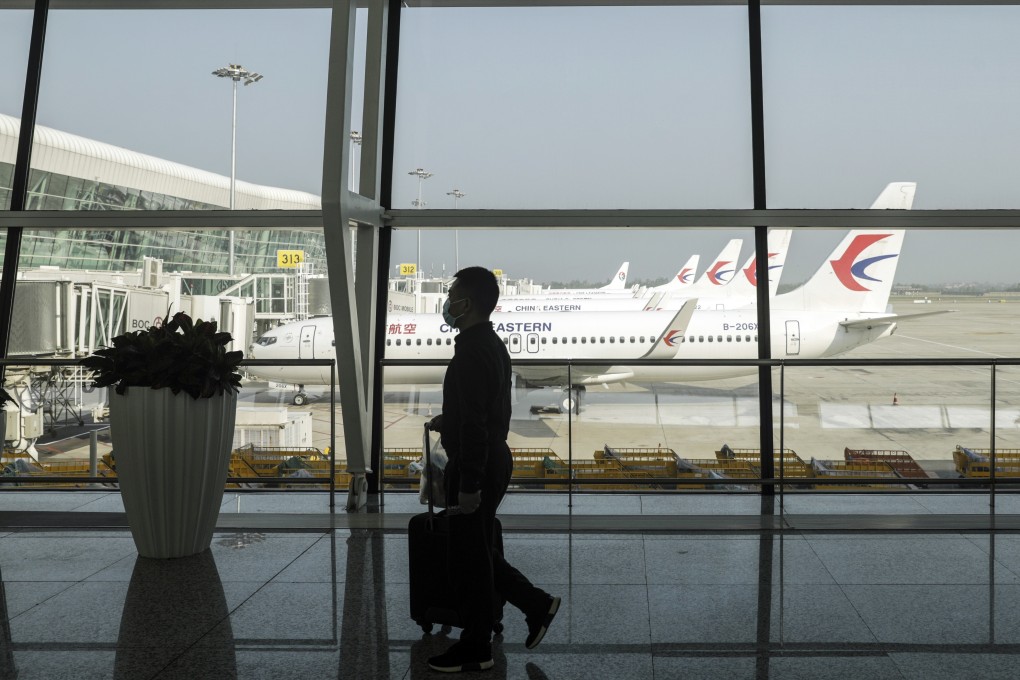After catastrophic slump, China’s travel revival ignites airport stocks, duty-free operators on turnaround bets
- An index tracking airport operators has risen 9.8 per cent from its March low, beating the Shanghai Composite Index
- Diversified airport operators are better shielded from Covid-19 damage, duty-free shops to gain from spending rebound

A gauge tracking six airport operators traded in the mainland and Hong Kong exchanges has rallied 9.8 per cent from the lowest point in March, outpacing the 3.4 per cent average gain in airline stocks, according to Bloomberg data. The Shanghai Composite Index rose 5.8 per cent in the same period.
While China has maintained strict limits on international flights to curb imported Covid-19 infection, the reopening of domestic routes is underpinning the rally. The number of flights has risen to 60 per cent of pre-pandemic levels on some days this month, according to Western Securities.
“The recovery in demand will be accelerating from May,” said Zhao Xinyue, an analyst at China International Capital Corp in Shanghai. “Demand has already troughed and the operating data will start to show a quarter-on-quarter improvement starting May.”